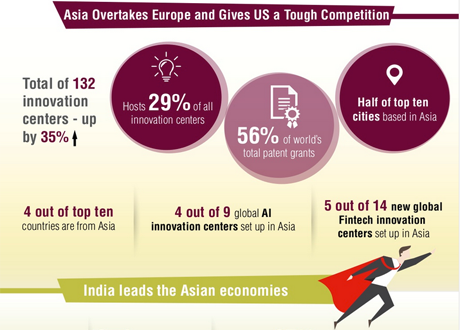Are Corporate Innovation Centers The Last Hope for Companies Too Big To Fail?
Companies once deemed “too big to fail” are increasingly exposed to failure. The threat of disruption is everywhere. Startups are taking on the Goliaths in every market. Scores of malls across the United States are in collapse. Many household brand names are losing ground or even shutting completely. Regardless of industry, businesses face digital Darwinism, the evolution of technology and markets. Disruption is just a matter of when, where and why. To compete, executives must make tough decisions but more so, they must look to new horizons for new insight and direction. Whether companies thrive or cower in the face of digital Darwinism is a choice.









